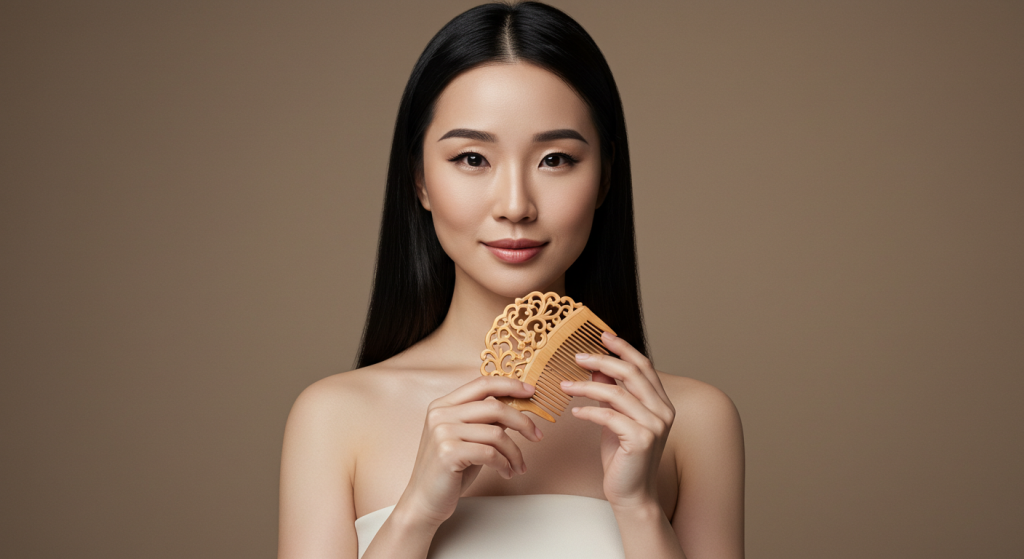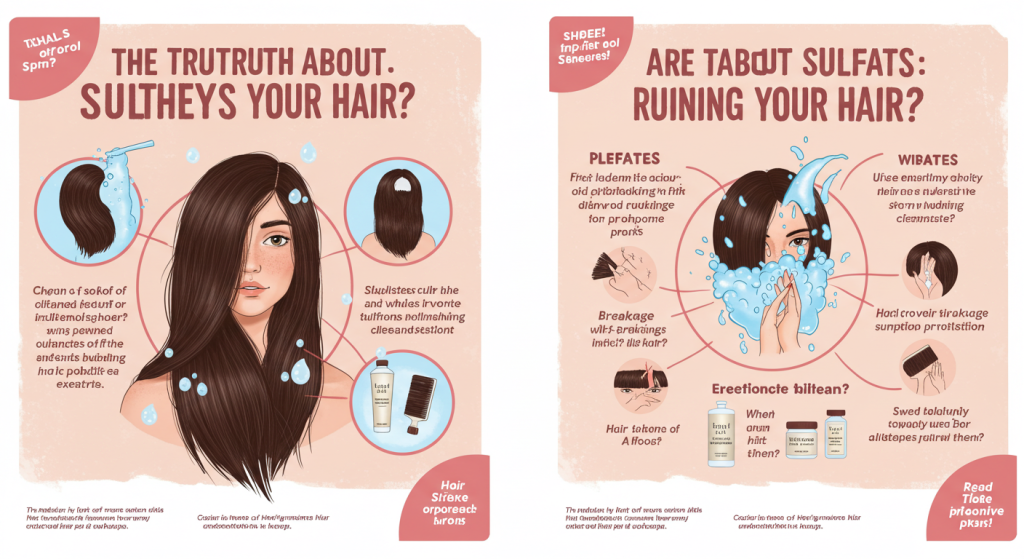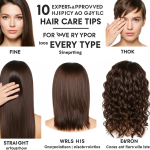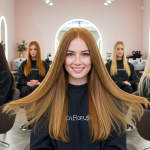Sulfates have become a buzzword in the hair care industry—and not necessarily in a good way. From salon chairs to social media, more people are asking the same question: Are sulfates bad for your hair? This ingredient has been the center of debate for years, often villainized in natural hair care circles and praised for its cleansing power by traditional stylists. So what’s the real deal?
Thank you for reading this post, don't forget to subscribe!Let’s break it down and uncover the truth about sulfates—what they are, how they work, and whether they truly belong in your hair routine.
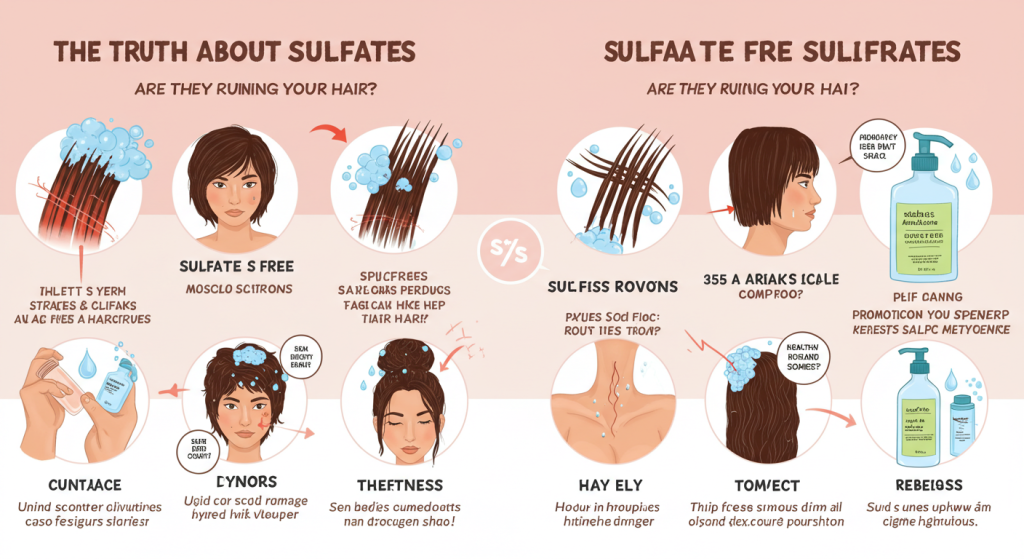
What Are Sulfates, Anyway?
Sulfates are a class of detergents (or surfactants) commonly used in personal care products like shampoos, body washes, and toothpaste. The most common types you’ll find on a shampoo bottle label are:
- Sodium Lauryl Sulfate (SLS)
- Sodium Laureth Sulfate (SLES)
These ingredients are responsible for the rich lather and squeaky-clean feeling you get when you wash your hair. They work by attracting oil and water, allowing dirt, sebum, and product buildup to rinse away easily.
🧪 Fun Fact: Sulfates were originally developed as industrial cleaners, so they’re incredibly effective at cutting through grease and grime.
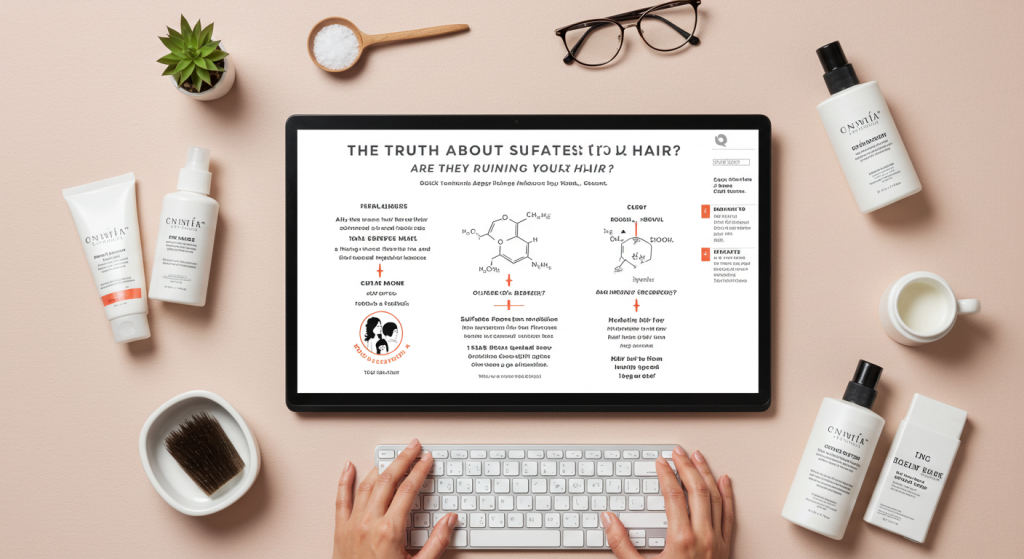
The Pros of Sulfates: Why They’re Still Used
Before we jump into the downsides, it’s important to acknowledge why sulfates are still widely used in many hair care products:
1. Powerful Cleansing
Sulfates are excellent at removing oil, dirt, and buildup from the scalp and hair. For people with oily hair or who use a lot of styling products, sulfates can be helpful in getting a truly clean feel.
2. Affordable
Sulfates are inexpensive to manufacture, which helps keep the cost of many shampoos low. That’s why they’re often found in drugstore brands.
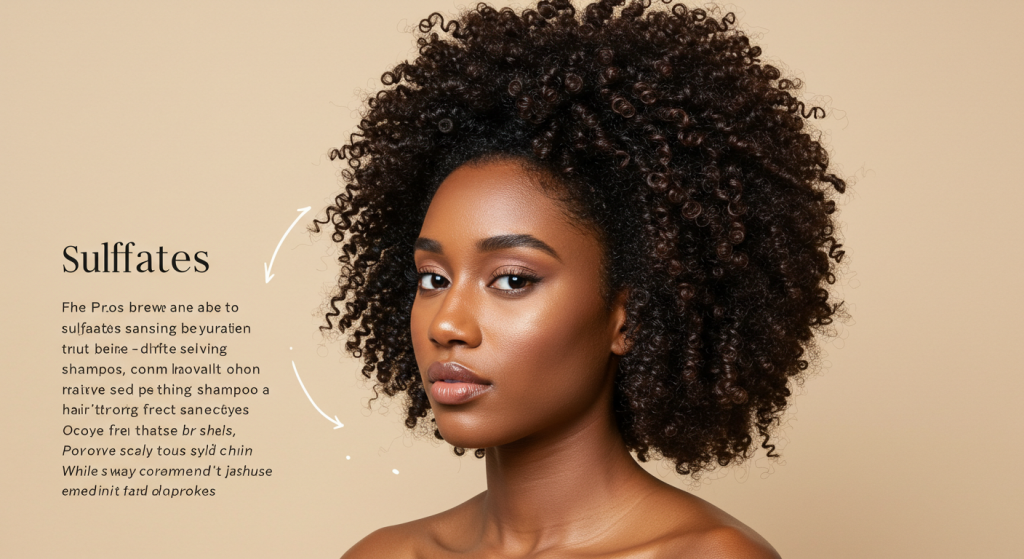
3. Foamy Lather
That thick, satisfying lather we associate with cleanliness? That’s sulfates at work. While lather doesn’t directly correlate with effectiveness, many users prefer the experience.
The Downsides: Are Sulfates Too Harsh?
Now here’s where the controversy begins. While sulfates aren’t inherently dangerous, they can cause issues for some hair types and individuals:

1. Strips Natural Oils
Sulfates don’t discriminate between the good oils your scalp produces and the buildup you want to remove. This can leave your scalp dry and your hair feeling brittle—especially for people with curly, coily, or dry hair.
2. Color Fading
If you color your hair, sulfates can accelerate fading by stripping away the dye molecules. That’s why many color-safe shampoos are labeled “sulfate-free.”
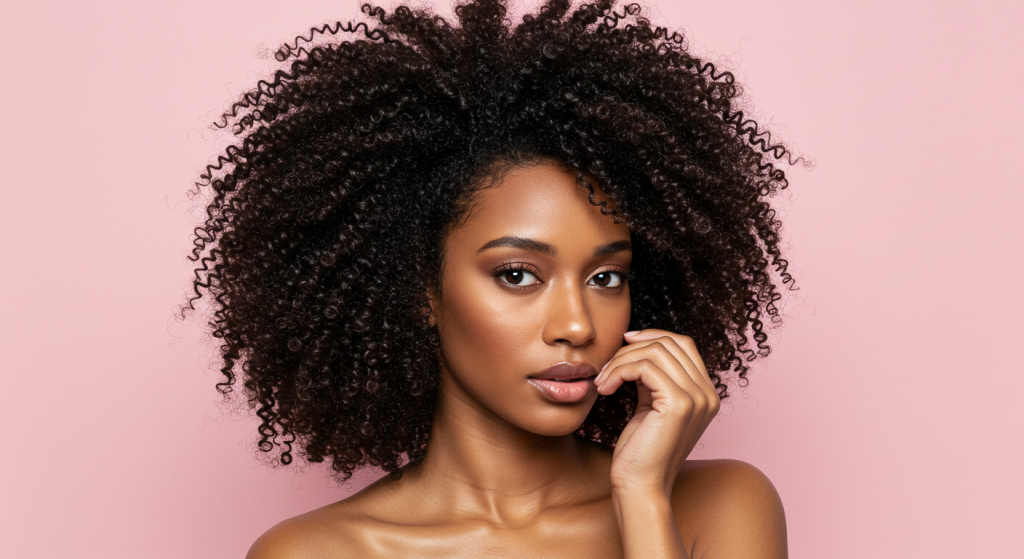
3. Scalp Irritation
Those with sensitive skin or scalp conditions like eczema or psoriasis might find that sulfates cause itching, redness, or flaking.
4. Damage to Hair Structure
Over time, frequent use of sulfate-laden shampoos may weaken the hair shaft, causing increased breakage, split ends, and frizz—especially in chemically treated or textured hair.
Who Should Avoid Sulfates?
Not everyone needs to go sulfate-free, but certain groups will benefit most from eliminating them:
- Curly or Coily Hair Types: These hair types are naturally drier and need all the moisture they can get.
- Color-Treated or Chemically Processed Hair: To preserve vibrancy and reduce further damage.
- Sensitive Scalps: If you’ve experienced irritation or itching from shampoos, sulfates might be the culprit.
- Dry or Damaged Hair: Sulfates can exacerbate brittleness and split ends.
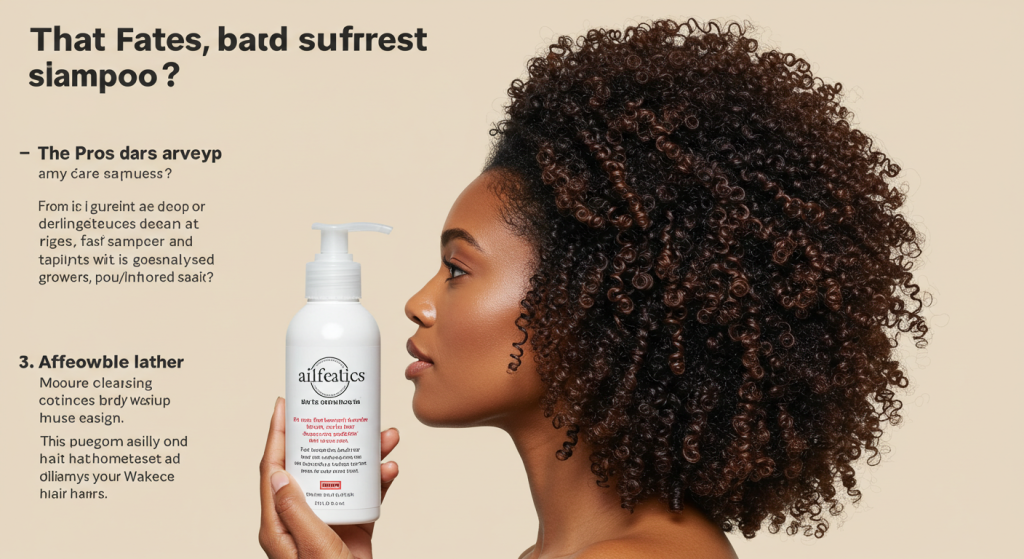
What Are the Alternatives?
Sulfate-free shampoos use gentler surfactants that cleanse without over-drying. Look for ingredients like:
- Cocamidopropyl Betaine (derived from coconut oil)
- Sodium Cocoyl Isethionate
- Disodium Laureth Sulfosuccinate
These still clean your hair effectively but are much milder on the scalp and strands.
🌿 Bonus: Many sulfate-free shampoos also include nourishing ingredients like aloe vera, argan oil, and shea butter to hydrate and protect your hair.

How to Transition to Sulfate-Free Products
If you’re considering making the switch, here’s what to expect:
- Adjustment Period: Your hair and scalp might take a few washes to adjust to a gentler cleanser. You may not get the same lather, but that doesn’t mean it’s not working.
- Clarify Occasionally: Sulfate-free shampoos may not remove heavy buildup as effectively. Use a clarifying treatment once every few weeks if needed.
- Be Patient: Long-term benefits like increased moisture retention and reduced breakage make the transition worth it.
The Bottom Line: Should You Ditch Sulfates?
Sulfates aren’t inherently evil—they’re just not for everyone. If your hair is healthy, oil-prone, and you don’t color it, you might do just fine with a sulfate-based shampoo. But if you struggle with dryness, damage, or scalp sensitivity, going sulfate-free could be a game-changer.
Ultimately, the best shampoo is the one that meets your unique needs. Understanding your hair type, lifestyle, and goals is the first step to choosing products that truly support your hair health.
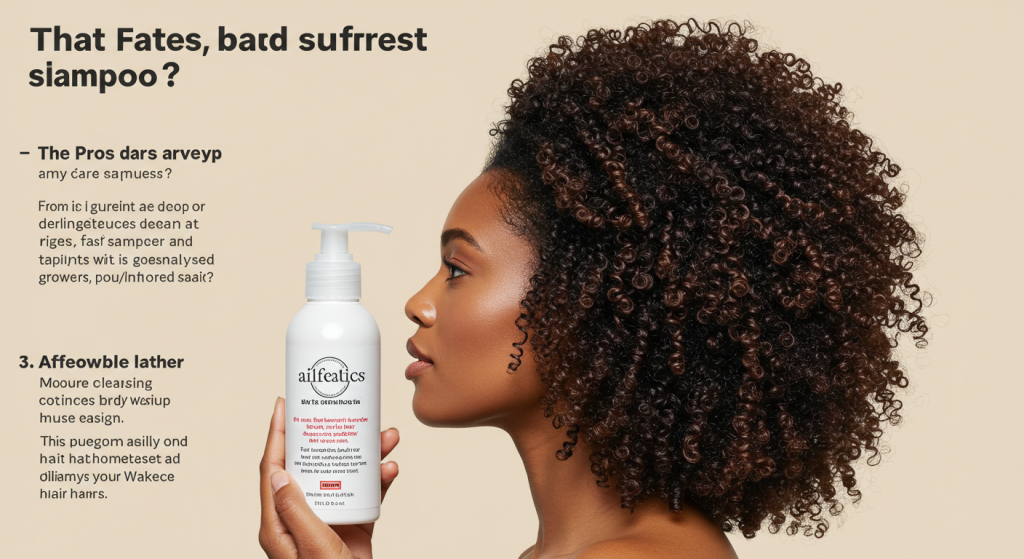
Quick Takeaways:
✅ Sulfates cleanse effectively but can be harsh on dry, damaged, or color-treated hair.
✅ Not everyone needs to avoid them—but sensitive scalps and curls often benefit from gentler options.
✅ Look for sulfate-free shampoos with moisturizing ingredients if you’re making the switch.
✅ Always prioritize your hair’s needs over trends.
